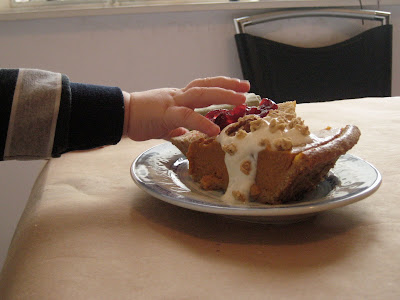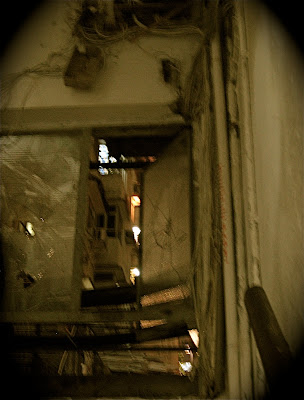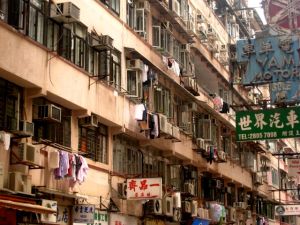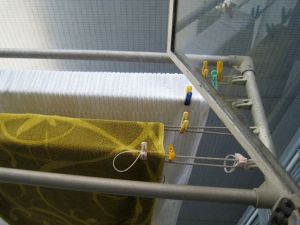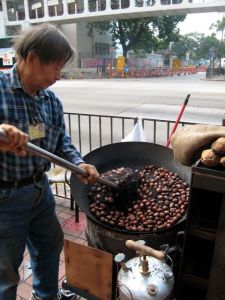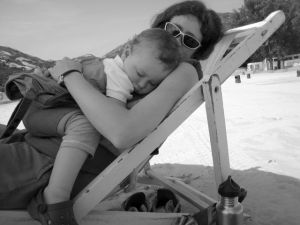First Sunday of Advent
Jeremiah 33:14-16
Psalm 25:1-10
1 Thess 3:9-13
Luke 21: 25-36
This is a difficult set of readings for me. Not only do they initially seem irrelevant for Advent, but my eyes tend to glaze over when I read of signs and looming disaster in the Bible. Honestly, I'm looking for something about cozy smells and Christmas baking. I want to read about how Mary said Yes! to God -- that's the kind of advent story even "positive thinking" gurus can get on board with. I want to walk away uplifted and smiling.
This is a difficult set of readings for me. Not only do they initially seem irrelevant for Advent, but my eyes tend to glaze over when I read of signs and looming disaster in the Bible. Honestly, I'm looking for something about cozy smells and Christmas baking. I want to read about how Mary said Yes! to God -- that's the kind of advent story even "positive thinking" gurus can get on board with. I want to walk away uplifted and smiling.
And then I remember that this is Advent. Not Christmas. And even if the mall decorations went up weeks ago, advent isn't really about ticking the days and tasks off until Christmas ... it's about learning to live with hope even in the midst of chaos. It's about having confidence in what God is doing even when the economy is horrible and waters are rising. It's about not giving into the temptation to either ignore the problems of the day or to be drowned by them.
Advent has historically been a solemn fast, a time of self-reflection in preparation for Christ's coming, and a time that looked forward to God's full redemption of the world more than it just retold the story of waiting for Jesus' birth. And despite the way that today's readings initially caused my eyes to glaze over, Jesus actually calls us to hope and action rather than fear when the "distress among nations" begins.
For the last few years I've tried to create a distinction in our home and family between Advent and Christmas, letting these dark times be dark and trying not to stuff the emptiness with rich foods or flood the darkness with lush decorations. It's hard to put into practice though--I love Christmas planning and parties as much as anyone. I've already led one Christmas baking class this month and I've got more scheduled. My Christmas gifts and cards have to be mailed early, so I've been working on them for months now, and decorating the home early certainly helps me feel less homesick. So how to cultivate an Advent awareness of darkness and longing even while carols plays relentlessly?
It's actually not hard to be reminded of the darkness--just open the paper and there it is. What is hard is continuing to face it, while at the same time always watching for light--watching for the ways that God's love and presence breaks through, often in as unexpected a way as a poor baby's birth.
What I'm going to do is this. We're certainly not going to avoid decorations, parties or carols during these weeks leading up to Christmas--who among us is so rich in joy as to be able to afford that? We already do an Advent wreath and light candles each week, watching the light grow along with our anticipation. To expand on this, we're going to be intentional about watching for light, speaking each night about the places we've seen God at work. I'm making a banner reminding us to "watch for light" and we'll add stories, news items, images and incidents as we find them.
I invite you to think about ways to consecrate this Advent season, whether it's intentionally "watching for light" as we're doing, or something else. Christmas Change is one site with ways to make the Christmas season more meaningful, and I'm sure there are lots of other resources out there as well.
Blessed Advent, everyone!
*thanks to Liese Shewmaker, who graciously let me use the photo above. Taken December 13, 2005, at 10:35:05 am just as fog was lifting from Mink Brook.*
Advent has historically been a solemn fast, a time of self-reflection in preparation for Christ's coming, and a time that looked forward to God's full redemption of the world more than it just retold the story of waiting for Jesus' birth. And despite the way that today's readings initially caused my eyes to glaze over, Jesus actually calls us to hope and action rather than fear when the "distress among nations" begins.
For the last few years I've tried to create a distinction in our home and family between Advent and Christmas, letting these dark times be dark and trying not to stuff the emptiness with rich foods or flood the darkness with lush decorations. It's hard to put into practice though--I love Christmas planning and parties as much as anyone. I've already led one Christmas baking class this month and I've got more scheduled. My Christmas gifts and cards have to be mailed early, so I've been working on them for months now, and decorating the home early certainly helps me feel less homesick. So how to cultivate an Advent awareness of darkness and longing even while carols plays relentlessly?
It's actually not hard to be reminded of the darkness--just open the paper and there it is. What is hard is continuing to face it, while at the same time always watching for light--watching for the ways that God's love and presence breaks through, often in as unexpected a way as a poor baby's birth.
What I'm going to do is this. We're certainly not going to avoid decorations, parties or carols during these weeks leading up to Christmas--who among us is so rich in joy as to be able to afford that? We already do an Advent wreath and light candles each week, watching the light grow along with our anticipation. To expand on this, we're going to be intentional about watching for light, speaking each night about the places we've seen God at work. I'm making a banner reminding us to "watch for light" and we'll add stories, news items, images and incidents as we find them.
I invite you to think about ways to consecrate this Advent season, whether it's intentionally "watching for light" as we're doing, or something else. Christmas Change is one site with ways to make the Christmas season more meaningful, and I'm sure there are lots of other resources out there as well.
Blessed Advent, everyone!
*thanks to Liese Shewmaker, who graciously let me use the photo above. Taken December 13, 2005, at 10:35:05 am just as fog was lifting from Mink Brook.*


